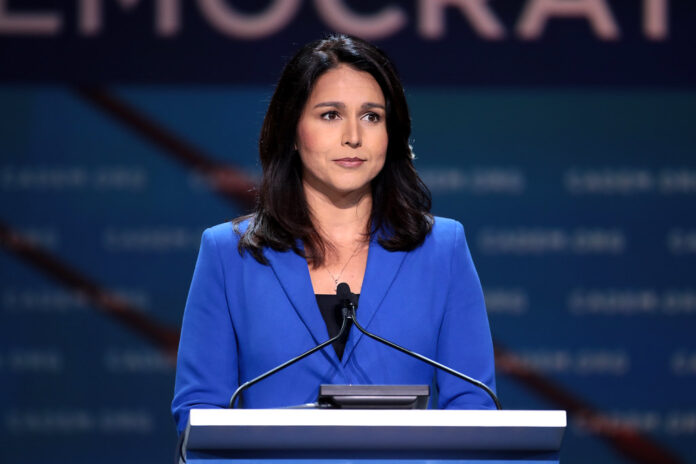Donald Trump’s latest pick for one of the most critical jobs in the U.S. government has sparked a huge debate. Tulsi Gabbard, his choice for the Director of National Intelligence, is facing a storm of criticism—and for good reason. This role is a big deal. It oversees 18 different intelligence agencies, including heavyweights like the CIA and NSA. But here’s the kicker: Gabbard has no background in intelligence or running major organizations. None.
Even more concerning is her track record when it comes to dealing with America’s enemies. Gabbard, an Army National Guard veteran and former Congresswoman from Hawaii, has made headlines for her friendly meetings with controversial leaders like Syrian President Bashar al-Assad and Russian President Vladimir Putin. Assad, in case you forgot, has been accused of using chemical weapons on his own people. Putin’s invasion of Ukraine has left countless lives shattered. Yet Gabbard hasn’t just avoided criticizing them—she’s echoed their talking points.
Take her 2017 trip to Syria, for example. She didn’t go through official channels and ended up meeting with Assad, despite his long list of horrifying human rights abuses. Gabbard later said she was “skeptical” that Assad used chemical weapons, even though U.S. intelligence reports were clear on the matter. During her 2019 presidential campaign, she refused to call Assad a war criminal and dodged questions about trusting U.S. intelligence if she were president.
To add fuel to the fire, Gabbard has appeared frequently on Russian state television, where she’s been dubbed a “Russian agent” in jest. She’s even repeated the baseless claim that Russia invaded Ukraine because of secret U.S.-funded bioweapons labs. This claim has been debunked; the U.S. funds public health programs in Ukraine to prevent disease outbreaks, not create them.
If that weren’t enough, Gabbard’s travel history raised red flags with the Transportation Security Administration, landing her on a travel watch list. Her overseas connections triggered a government algorithm, which is practically unheard of for someone aiming for a sensitive national security role. And yet, Trump has hinted he might skip the usual background checks for her nomination altogether.
Critics believe Gabbard’s nomination isn’t serious—more like a distraction to make whoever Trump picks next seem like a better option. But it also shows Trump’s willingness to play fast and loose with national security. Let’s not forget his own troubling history with classified information. After leaving the White House, Trump was accused of mishandling thousands of government documents, including sensitive ones about nuclear weapons and spy satellites. The FBI found some of these papers in a bathroom at his Mar-a-Lago resort, where major events were happening just feet away.
This isn’t the first time Trump has been careless with intelligence. Back in 2017, he reportedly shared classified information with Russian officials during a White House meeting. And let’s not overlook his habit of attacking intelligence professionals, calling them part of a “deep state” conspiracy against him.
The bigger issue here is how this impacts the intelligence community as a whole. Intelligence officers are supposed to “tell truth to power,” even when the truth isn’t what the president wants to hear. They’re there to provide the facts, challenge biases, and keep bad ideas in check. Trump’s decision to appoint Gabbard—someone who critics say might bend the facts to suit his narrative—threatens that balance.
In the past, even presidents with strong opinions have listened to their intelligence advisers. Bill Clinton, for instance, was persuaded not to arm Bosnian Muslims during the 1990s despite his initial inclination to do so. That’s how the system is supposed to work: intelligence teams provide the facts, and leaders make informed decisions. But with Gabbard in charge, there’s a fear that intelligence could become a tool to push Trump’s agenda rather than protect the nation.
This decision isn’t just controversial—it’s dangerous. Senate Republicans have a duty to step up, scrutinize Gabbard’s qualifications, and block this nomination. The stakes are simply too high to do otherwise.
